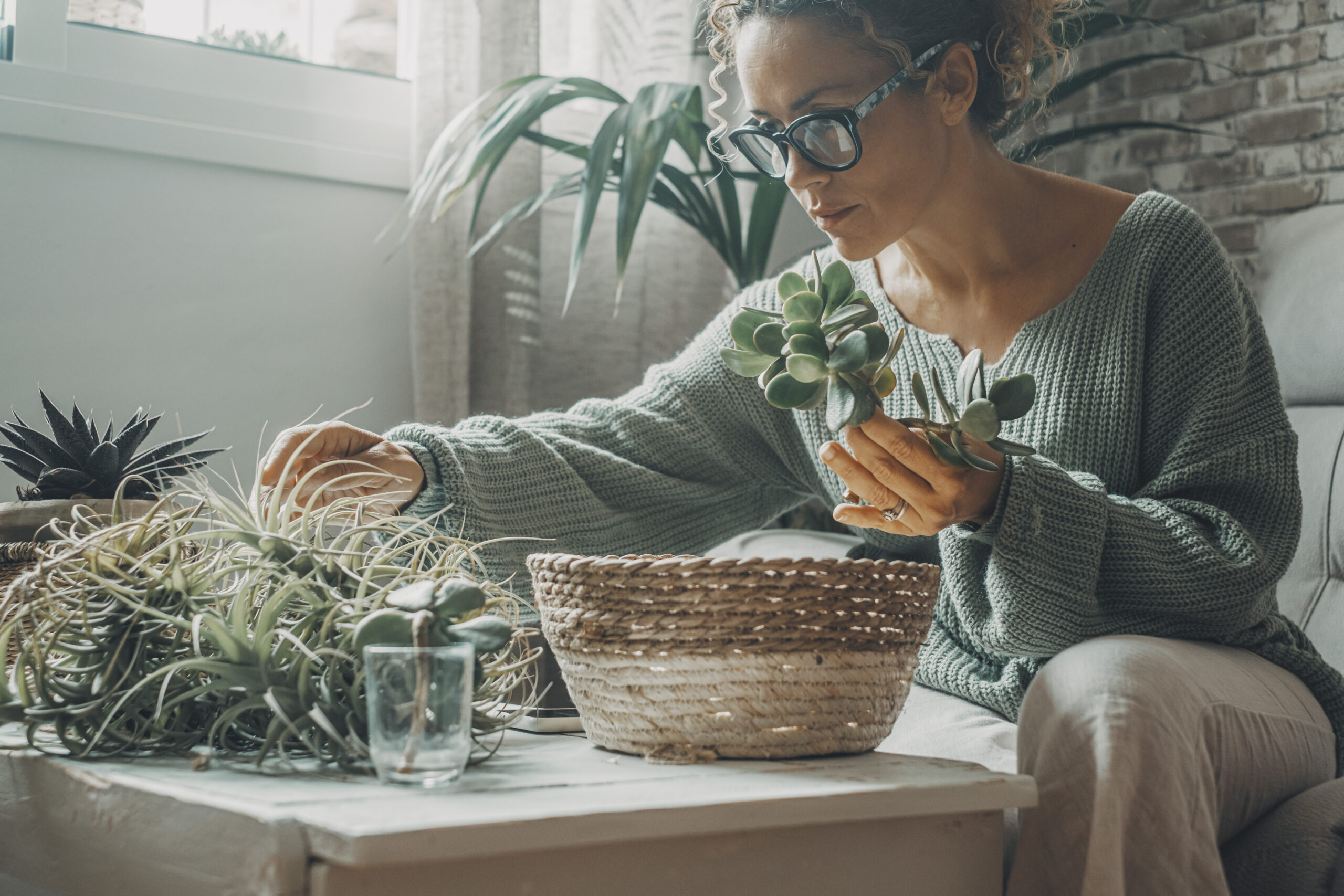Your cart is currently empty!

Indoor Gardening Tips and Tricks

If you have decided to start gardening indoors, there are a few things you can do to make it more successful. These tips include making sure you keep your pest control in check, properly fertilize your plants, and water them less frequently but more thoroughly.
Watering less frequently but more thoroughly
If you’re lucky enough to have a green thumb, you’ve likely wondered about the best way to water your indoor plants. The trick is to find out what your plant is requiring while taking into consideration the weather, temperature and humidity levels. A good rule of thumb is to water once a week. Alternatively, you can use a sprinkler system to control the hydration of your prized possessions.
The key to success is a good irrigation system that can be adjusted as the weather dictates. In the fall, this means sunny weather with low humidity. Similarly, the winter season brings low temperatures and a need for less frequent watering. This is especially true for succulents. Soaking the soil to a depth of several inches should do the trick.
The best way to determine which is the right amount of water is to use a rain gauge. This not only helps you avoid overwatering, but it also lets you see which plants are thirsty.
Fertilizing properly
When fertilizing plants, it is important to understand what nutrient your plant needs. This will help you determine which type of fertilizer to use. You can choose between liquid, granular, or slow-release fertilizers. Each type of fertilizer works differently and requires different conditions to function.
Liquid or water soluble fertilizer is the best option for indoor plants. The nutrients will be absorbed into the soil rather than burning the foliage or roots.
If you are interested in gardening, it’s a good idea to take a soil test to make sure the nutrients your plants need are present in the soil. A soil test can also help you determine how to feed your plants.
A general purpose indoor plant fertilizer will work for most houseplants. These fertilizers are full of nitrogen, potassium, and phosphorous. Nitrogen is especially important for leaf growth and phosphorous for root development.
There are many types of fertilizer, so you should always read the label. Fertilizers can be synthetic or organic, and they can contain micronutrients as well. However, organic fertilizers are the safest. They are produced by plants and animals, and may contain worm castings and compost.
Organizing your garden
Organizing your indoor garden isn’t for the faint of heart. Thankfully, it’s not like yours truly has a bevy of assistants and gardeners to toss around. So, a little legwork on your part can mean the difference between having the coolest new neighbors and an ear to the ground. Having a green thumb is a plus when it comes to gardening and you aren’t tied down with the kids. The good news is that if you are lucky enough to have a nice enough yard, you can actually go outdoors and enjoy your hard work. After all, who wants to sit inside on a warm summer afternoon? A well maintained garden can be a respite from the rat race. Plus, with the right gardening supplies in hand, a barefooted gardener can get more work done in less time and more money in the bank. Getting the coop on a garden is a surefire way to spend some quality time with the family.
Pest control
If you’re growing houseplants inside, you may need to take steps to prevent pests. Luckily, there are a few tips and tricks that can help keep pests out of your indoor plants.
First, check your soil for nutrient imbalances. These can look like diseases but can actually be a sign of pest infestations. This can be remedied by adding a healthy amount of organic matter to the soil. You can also use horticulture oil to help control insect pests.
Secondly, inspect your plants for signs of pests. If there are any small pests, such as aphids, remove them immediately. Also, if you see a sticky substance on your plant, there’s probably a pest infestation.
Thirdly, if you are experiencing heavy infestations of insects, you can spray your plants with neem oil or insecticidal soap. However, these solutions should be used only when necessary.
Finally, if you want to attract beneficial insects to your yard, you can place netting over your plants. Beneficial insects will eat pest insects and lay eggs in the yard.
by
Tags: